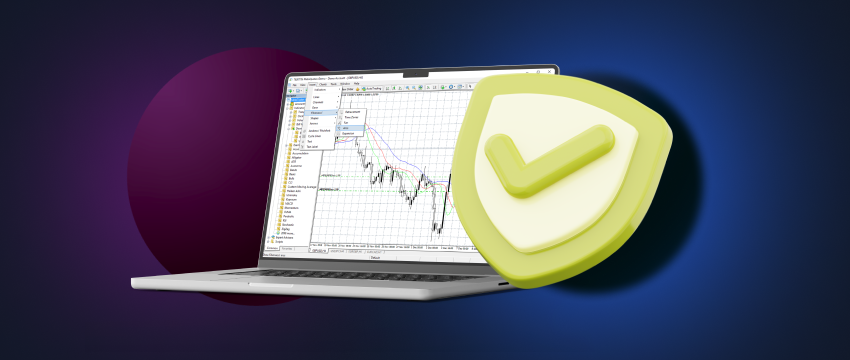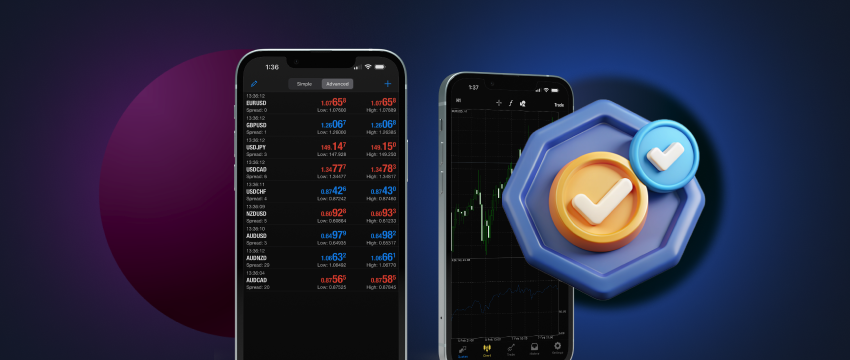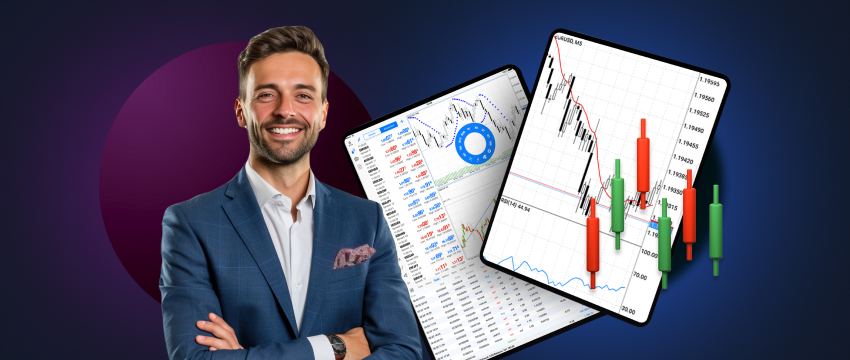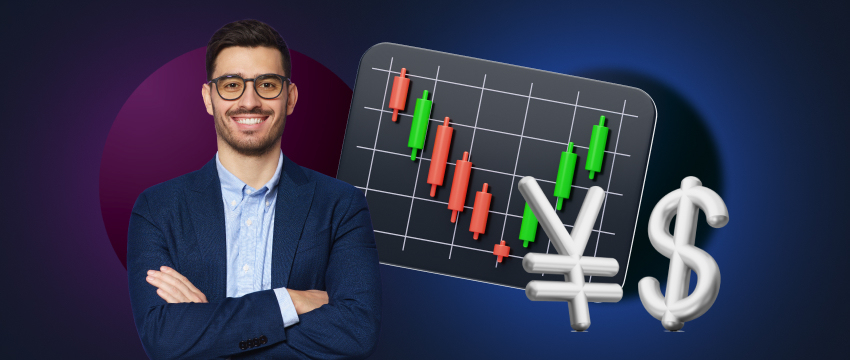The term “gut feeling,” “trading instincts,” or “inner voice” that directs judgment is frequently used to describe intuition. It is a subconscious process that provides direction and insights by referencing observations, patterns, and past experiences.
In trading, intuition or trading instincts are like pattern recognition. They help traders spot market changes or opportunities that traditional analysis might miss.
Most of the time, what distinguishes beginners from professional traders is intuition. The term “intuition” describes the capacity to comprehend or know something without using conscious thought. Even though intuition isn’t as measurable as traditional analysis, it still has a big impact on trading performance.
Professional traders can use their intuition effectively and adapt their strategies to current market conditions due to their experience. New traders often struggle to adjust to changing markets because they mostly rely on technical and fundamental analysis.
In order to potentially trade forex successfully, a trader should balance between intuition and analysis. Acknowledging the importance of intuition means appreciating its contribution to decision-making, as it provides perspectives that data might miss. Remaining neutral helps avoid prejudices and emotional choices.
Traders can develop a reliable trading strategy and increase their trust in their intuition by testing and validating it with analysis. Additionally, traders can confidently navigate the forex markets by adopting a balanced approach.
This article will explore the role of intuition and instincts in trading. We’ll discuss how they work best when combined with analytical methods and share practical ways to follow your intuition.

Make use of your intuition and trading instincts
When trading, acknowledge that intuition can provide additional insights beyond traditional analysis and employ it as a tool. Intuitive insights are frequently produced by the subconscious mind’s capacity to process enormous amounts of data, hidden signals, and patterns that are frequently not immediately apparent through analytical methods alone.
Integrating intuition into trading strategies helps traders understand market dynamics, sentiment shifts, and emerging trends better. However, it’s crucial to balance intuition with analysis. While intuition can provide valuable insights, it should not replace thorough research and risk management procedures.
Finding trends in the market with trading instincts
Before new market trends are obvious through conventional analysis, traders can use intuition to help them spot them. For example, they can detect when a new uptrend is beginning prior to a moving average pointing the market higher. Traders may experience mood swings, pick up on subtle price patterns, or sense market reversals by using their intuition.
Exercise your visualization skills to strengthen trading instincts
To improve decision-making and emotional resilience, forex traders use visualization techniques. These involve mentally recreating price movements, trade executions, risk management, and goal achievement scenarios. By simulating different trading scenarios, traders can enhance their outlook, confidence, and overall performance in the forex market.
By mentally practicing possible trading scenarios and outcomes, traders gain a better understanding of market dynamics. Visualization allows traders to access their subconscious insights, visualize trading strategies, speculate on different market movements, and identify potential entry and exit points.
Furthermore, traders who use visualisation during trading sessions can better control their emotions, feel less stressed、そして stay focused. Including visualisation exercises in your daily trading routine can help you become more intuitive, make better decisions, and ultimately perform better in the market.
Enhancing timing & managing risk
In trading, intuition can be used as an extra tool for risk management. It can serve as an early warning system, informing traders to change course or close positions when they get a “gut feeling” that something is off. When objective analysis fails to reveal potential dangers or risks, intuition can assist traders in identifying them.
A trader’s ability to judge the right moment to enter and exit a trade is largely dependent on intuition. Trading professionals who follow their trading instincts may be able to predict when the market is ready for a breakout or reversal and thus better time their trades.
Keep a record of your intuitions and trading instincts
Throughout the trading process, keeping a trading journal is helpful for recording and examining intuitive insights. Before, during, and after trades, traders should capture their thoughts, feelings, and observations. This practice provides insights into their intuitive decision-making process.
Regularly reviewing journal entries helps traders spot trends, patterns, and recurring intuitions, offering valuable information to improve their trading tactics.
Keeping a journal also enables traders to monitor their progress, remain accountable, and draw lessons from both wins and losses. Traders can develop better decision-making abilities, increase self-awareness, and improve overall trading performance by keeping a journal of their intuitions.
Use a demo account to test your intuition
Test and validate your intuition in a risk-free environment via a demo account, without risking actual money. Traders can evaluate the precision and dependability of their intuitions by placing trades in a simulated trading environment and watching how they turn out. Through paper trading, traders can test out various trading tactics, improve their decision-making process, and develop their intuitive skills.
Trading on a demo account provides valuable educational opportunities. It allows traders to evaluate their strategies without financial risk. By incorporating demo trading into their routine, traders can improve performance, enhance decision-making skills, and build confidence in their intuition.

Create a pre-trade routine to sharpen trading instincts
Before placing a trade, creating a pre-trade ritual is an effective way to focus attention, center the mind, and create a mental environment that supports intuitive decision-making.
Pre-trade rituals can involve a range of activities, including deep breathing exercises, visualisation exercises or relaxation techniques.
Traders can lower stress, anxiety、そして emotional volatility by developing a sense of routine and framework around their trading activities through consistent participation in a pre-trade ritual.
A pre-trade ritual also signals to the subconscious mind that it’s time to switch to an intuitive, focused state, which improves decision-making abilities in trading by boosting clarity, confidence, and decisiveness.
Better decision-making and increased performance are all positively impacted by incorporating a pre-trade ritual into a regular trading schedule.
First reaction is usually the right one
A key component of intuitive choices in trading is having trust in one’s initial gut reaction to a trade. Though thorough investigation and analysis are necessary for successful trading, intuition frequently offers insightful information that may not be immediately apparent through logical analysis alone.
Emotional reactions, gut trading instincts, and intuition in general are all important indicators of significant data regarding market conditions, sentiment, and possible opportunities and risks. Therefore, it is crucial to consider these indicators when assessing trading opportunities.

Think back on previous choices to refine your trading instincts
Through examining both profitable and losing trades, traders can learn a great deal about the precision and effectiveness of their intuition.
Evaluating previous decisions, recognising the advantages and disadvantages of decision-making procedures, and drawing conclusions from them to improve future processes are all components of reflective practice.
Traders can also develop stronger emotional intelligence, self-awareness, and resilience during periods of uncertainty and difficulties by thinking back on previous decisions. They can improve their intuitive skills and attain consistency in their trading by regularly reflecting on their trading process.
Final thoughts
It’s critical to strike a balance between rational analysis, risk management techniques, and intuition in order to make sure that trading decisions are based on a thorough evaluation of both scientific data と intuitive insights. Traders can improve their overall trading performance and take advantage of valuable intuitive insights by learning to trust and act upon their initial gut reactions.
Disclaimer: This material is for general informational and educational purposes only and should not be considered investment advice or an investment recommendation. T4Trade is not responsible for any data provided by third parties referenced or hyperlinked in this communication.




